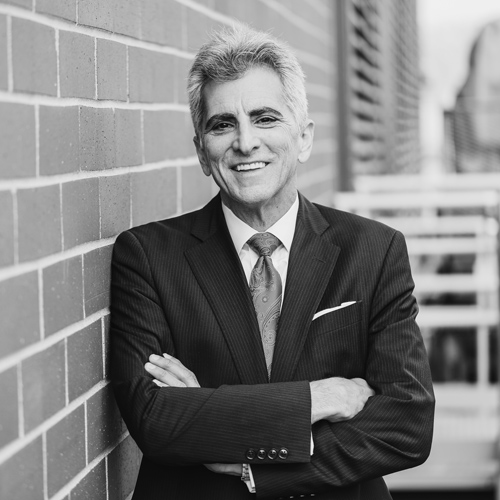Nathan Vitan’s career as a litigator began long before he finished law school—and even before he finished college.
When he was an undergraduate studying biology and pre-med, he joined the University of Virginia’s (UVA) Honor Committee as a student counsel. The committee held trials involving allegations of lying, stealing, and cheating, with student lawyers defending the accused.
“They’re real trials,” Vitan says. “We called witnesses, we presented evidence, we made opening and closing arguments to juries.”
Since students who were found guilty were automatically expelled, the cases were “very weighty, involving real issues affecting real people,” Vitan continues. “By the time I had to make that decision to go to law school, I had a pretty good idea of what it was like to be a litigator.”
After graduating from UVA law school, Vitan continued litigating cases, and in June 2016, became vice president and chief counsel—litigation and operations at Public Storage, the world’s largest owner and operator of self-storage facilities. The company has more than 2,300 properties in thirty-eight states and serves more than one million customers.
Vitan oversees a team that handles real estate, landlord-tenant, and other formal and informal litigation matters for the company. Previously, he spent eight years as assistant general counsel at Altria, where, he says, “litigation was heavily oriented toward personal injury cases.”
Both of these companies have different amounts at stake in each case, an assortment of risk profiles, and view different issues. Despite these differences, Vitan considers the same factors when deciding whether or not to litigate. He says in-house counsel must have a clear understanding of what a win looks like, but with an eye toward “creating or preserving value with every dollar you spend.” In some cases, these dollars are best spent on courtroom defense, but in other cases, the cost of litigating outweighs the benefit.
Vitan’s first case at Altria was “a retrial of the punitive damages phase of a liability case, where the plaintiff originally obtained a $28 billion punitive damages award against Philip Morris USA,” Vitan recalls.
“With that kind of exposure, it would be appropriate to expend resources to litigate the case,” Vitan says, adding that with a lower exposure issue, such as a contract dispute, “going to trial and litigating may be the imprudent thing to do, given what’s at stake, and informal dispute resolution proceedings might be the appropriate approach.”
Vitan also considers non-monetary factors, such as whether the case will set a precedent and affect how future issues are resolved.
“Is it part of a broader strategy of not settling, because if you settle, others might take the message that the company is willing to settle cases and thereby invite further litigation?” he asks.
Vitan sees issues as having a natural arc—almost “a life of their own.” He might encounter a problem at any point in that arc, from a question about a potential risk to full litigation. The same considerations apply at each stage in an issue’s life, Vitan explains, but “as an issue matures
into litigation, one has fewer opportunities to address it.”
Vitan and his team are also exploring how to leverage technology to identify systemic risks early so that they can address them through revised policies rather than through litigation.
“My view is that the most expedient and prudent time to address these risks is before they materialize. Resources are more efficiently allocated to that task than responding ad hoc to cases that are brought against the company,” Vitan says.
With more than 2,300 properties, Public Storage generates plenty of data. But the issue is determining what data to track in order to identify trends and anticipate issues before they arise. When Vitan is faced with a challenging decision—whether inside or outside of work—he looks to mentors such as Henry Abraham, a constitutional law and American government professor, whom he studied with at UVA. Similar to Vitan, Abraham immigrated to the United States—in his case, from Germany.
“Because of his charm, his wit, his intelligence, and compassion, he was able to rise to the top of his field, and in the process, earn the respect and adulation of thousands of students. I try to emulate him and lead my life as he did,” Vitan says.
Vitan moved from the Philippines to the Washington, DC, area when he was eleven years old. He soon became intrigued by the government institutions he would later study: the White House, the Capitol, and the monuments commemorating the history of the United States. A firsthand view of “the underpinning of America” affected Vitan.
“These institutions, and our country’s governmental structure, allow opportunities for people like me,” Vitan says.
Before Vitan joined UVA’s Honor Committee, he was studying to become a physician, a path he chose after his grandfather, whom he lived with, became paralyzed from the neck down. Seeing his grandfather in that condition stirred a desire to do something in science and medicine. “I think the sense of duty and obligation kept me there,” Vitan says.
And it was thanks to this same grandfather, a former mayor in the Philippines, that Vitan was able to follow a path to law.
“He never went to law school,” Vitan says about his grandfather. “He always wanted to be an attorney, but he just didn’t have that opportunity.”
“I believe I bring that perspective—the immigrant’s perspective,” Vitan continues. “I appreciate how valuable opportunities can be and how my life turned on the opportunities I was presented.”
Vitan uses that same perspective in managing his team on a daily basis. “I want to help my team take advantage of opportunities to grow and succeed,” he says.


